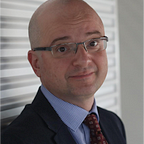Synthetic Life
Once we gain a good understanding of the genomes of all living beings on Earth, we should be able to design entirely new life forms and invent some new properties that do not exist today. The ethical implications of this step, which has already been given the name — “synthetic biology” — are difficult to imagine from today’s perspective.
In historic times, it was difficult to answer the question of how long a human could possibly live. In the days before antibiotics and vaccines, when many infectious diseases were rampant, diets were poor and sanitary conditions inadequate, there were indeed many ways for a human being to leave this world prematurely. No one could hope to avoid so many of the health risks that were lurking in people. However, the previous chapters of this book should help us understand just how much progress has been made in the last 150 years alone. Compared to the entire human history, in this very short time window humanity has made unimaginable economic, scientific and technological advances. Thanks to these advances, we are becoming better aware of our biological limits in time.
By optimizing the environment in which we live, preventing and treating dangerous infectious diseases, ensuring nutrition of much better quality, optimizing the process of human growth and development, developing sophisticated medical procedures, and generally improving economical prospects, people are beginning to reach the upper limit of their time span — at least in relation to the way we were originally designed. That biological limit on the duration of…
